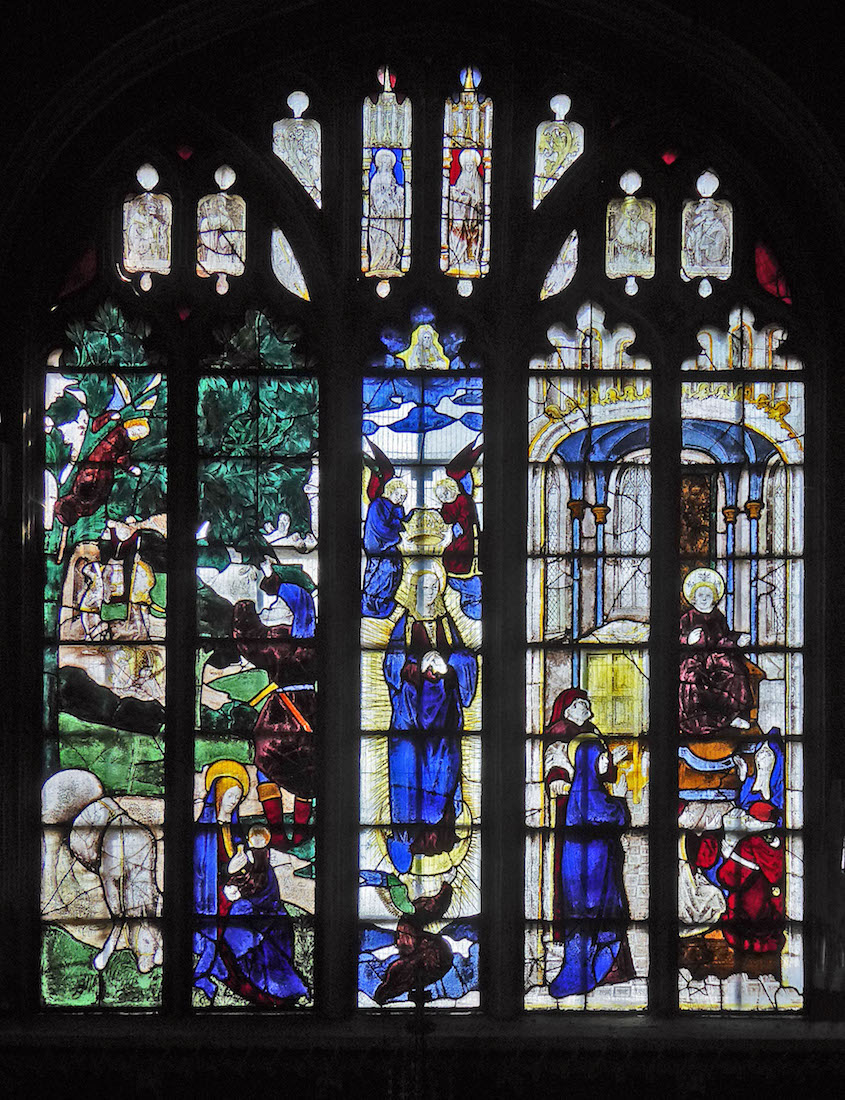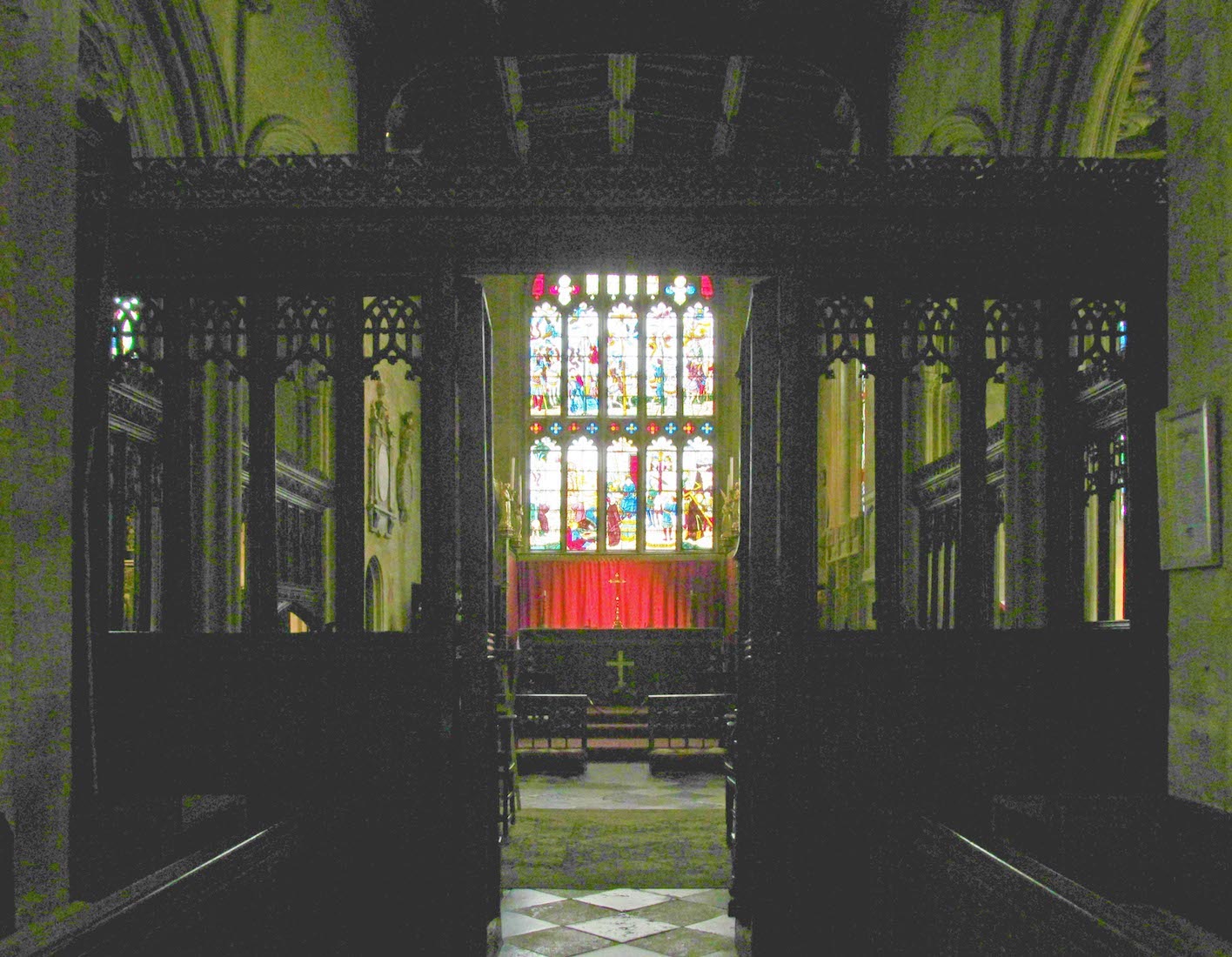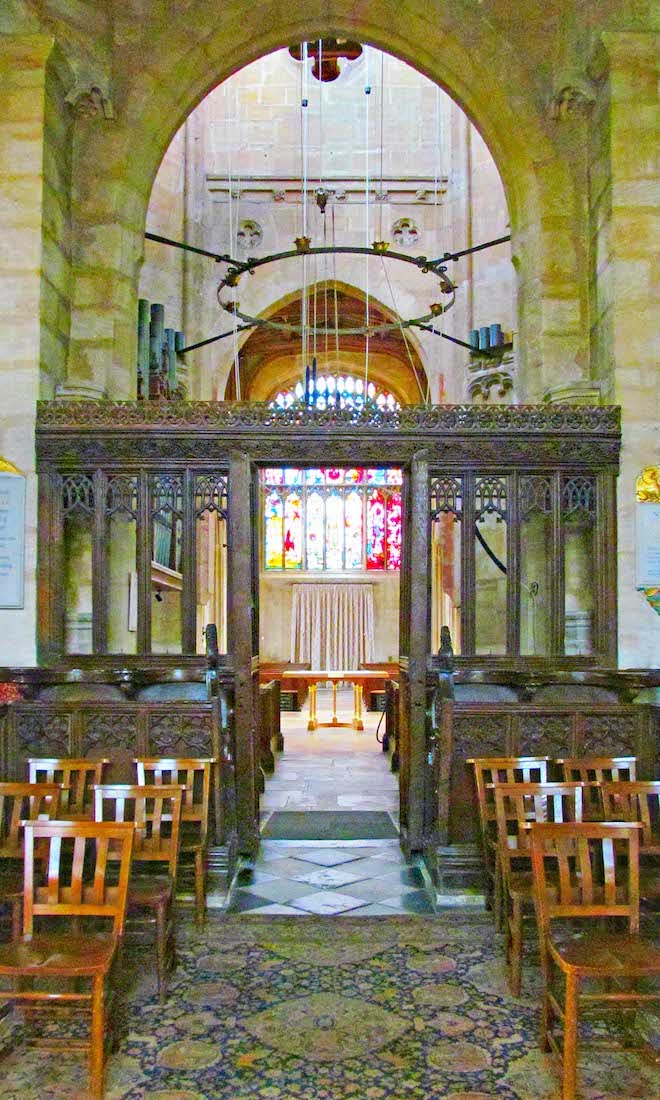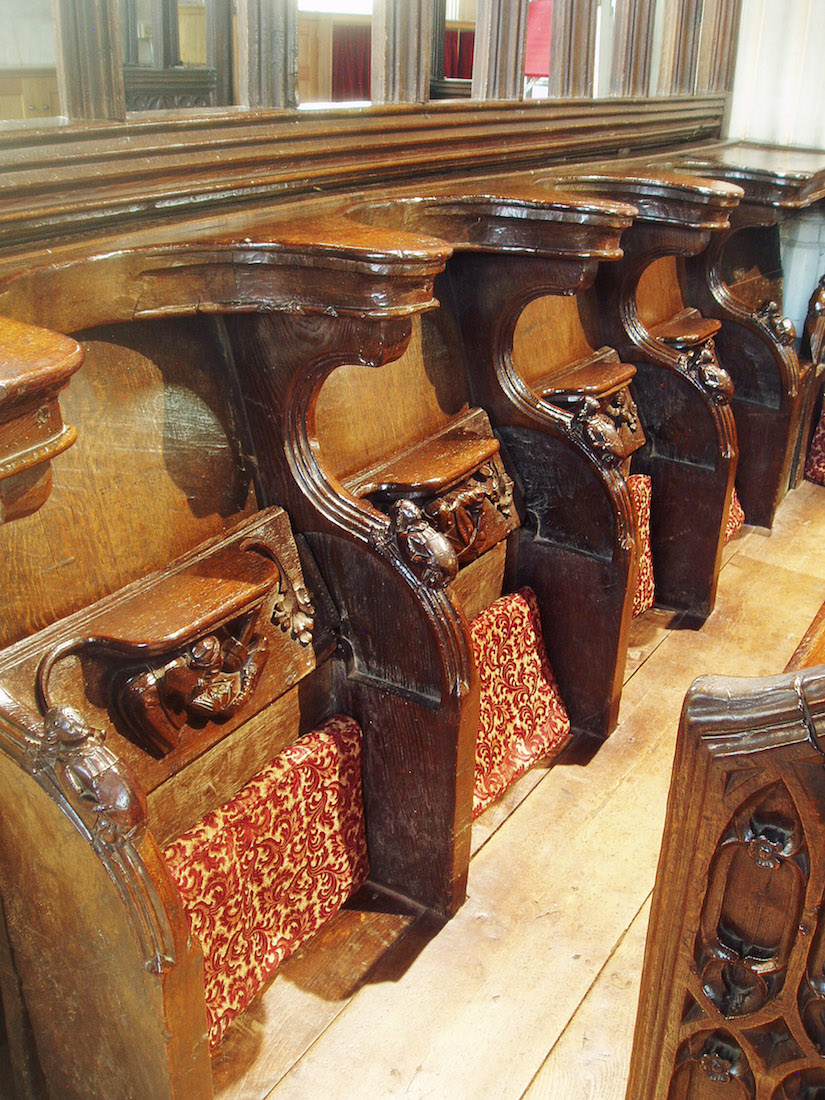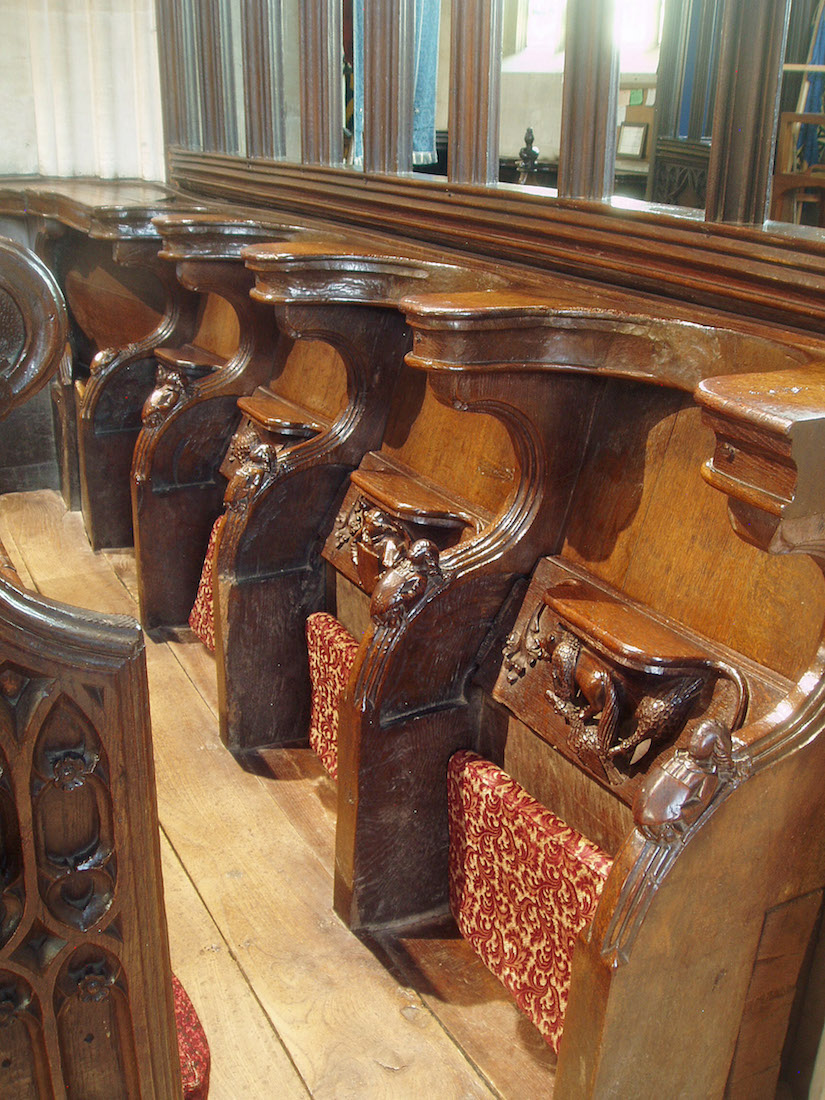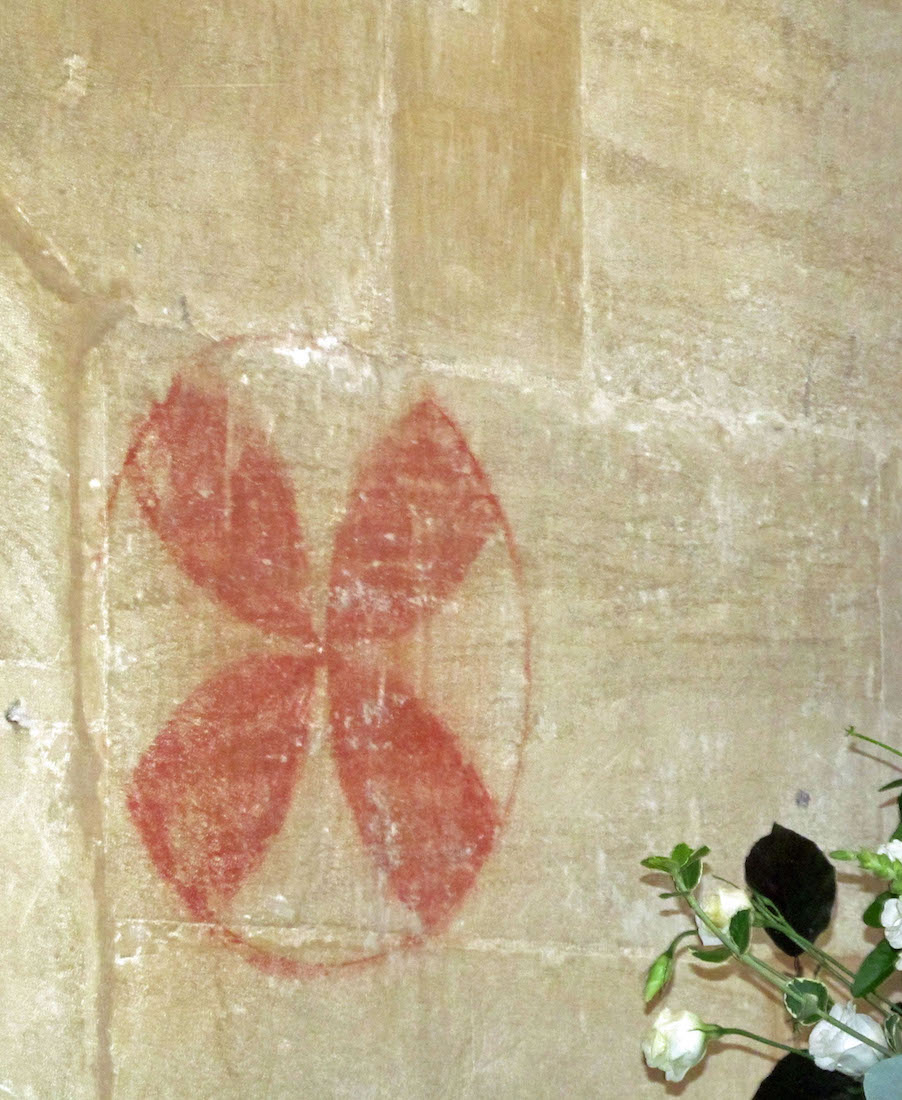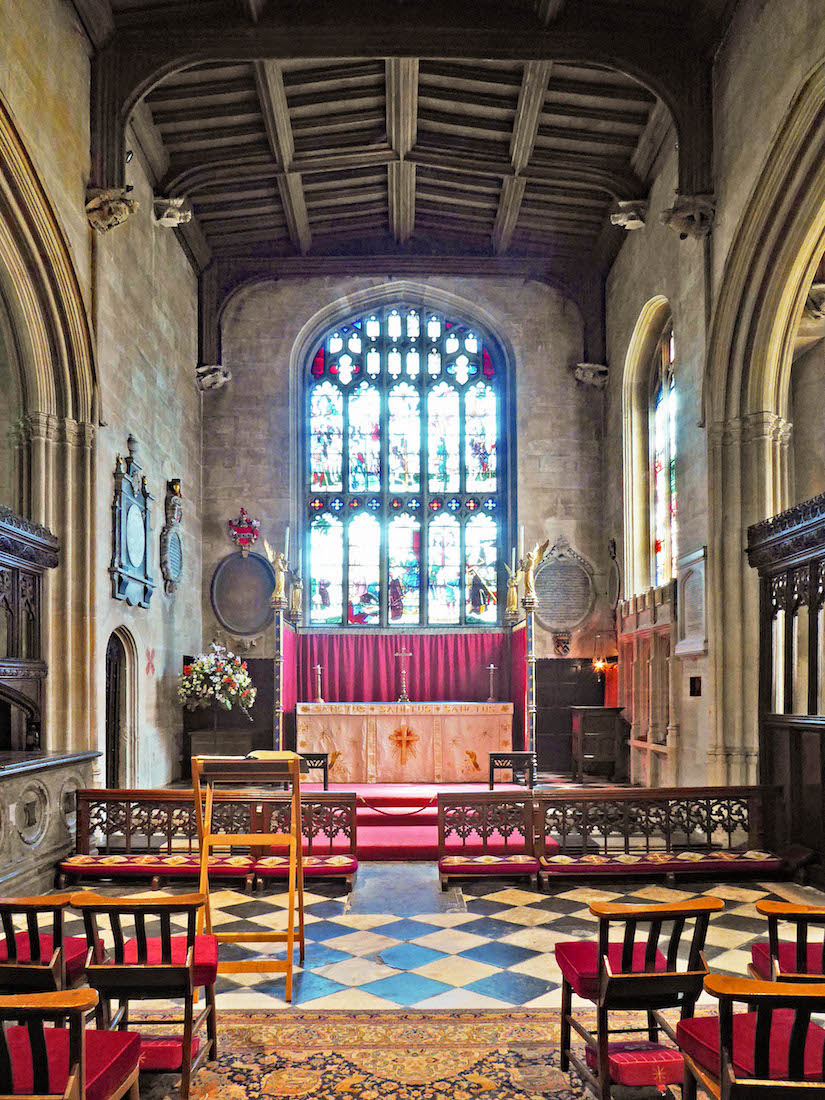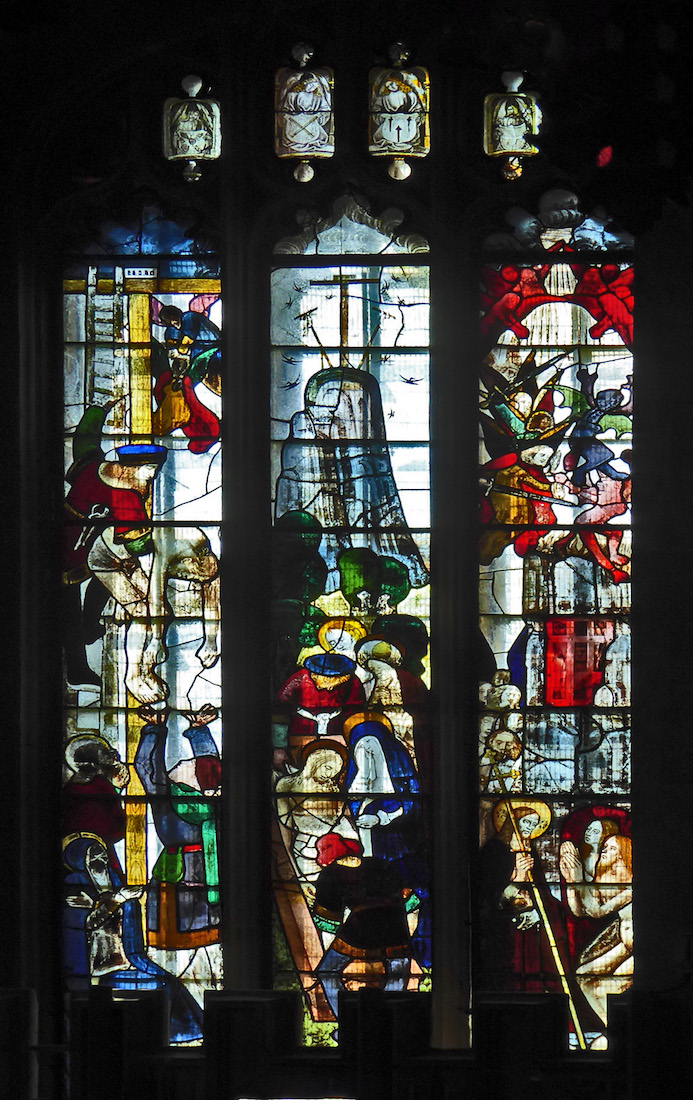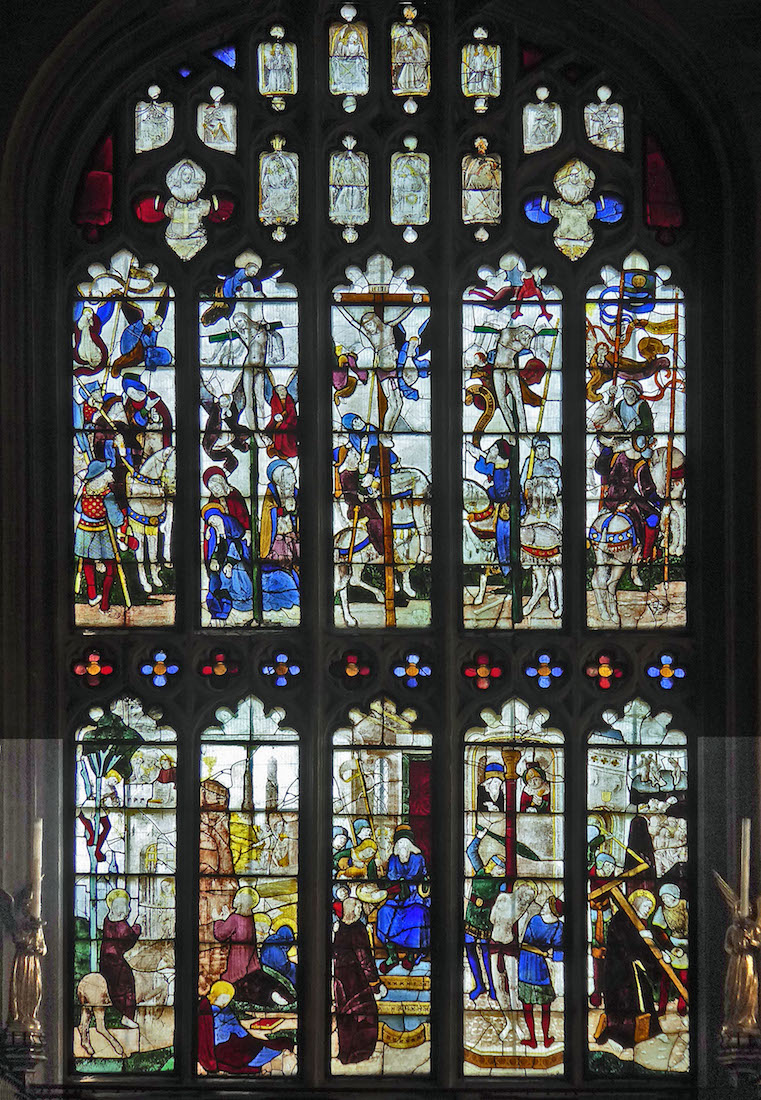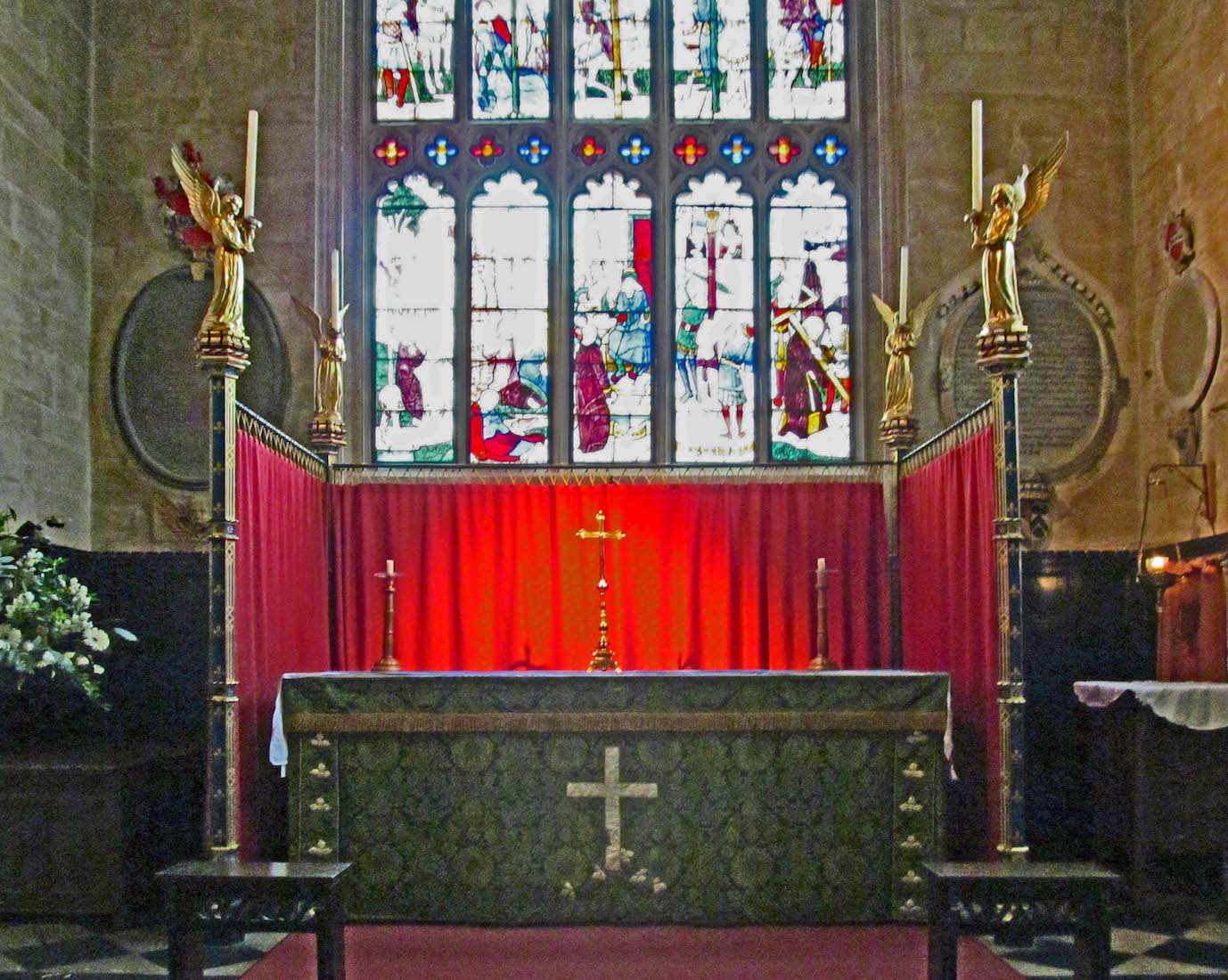41. CHAPEL EAST WINDOW AMT
The East window [4] of the Lady Chapel features the Christ Child. In detail we see the Flight into Egypt, The Assumption of Mary, and Jesus among the Doctors in the Temple. INDEX
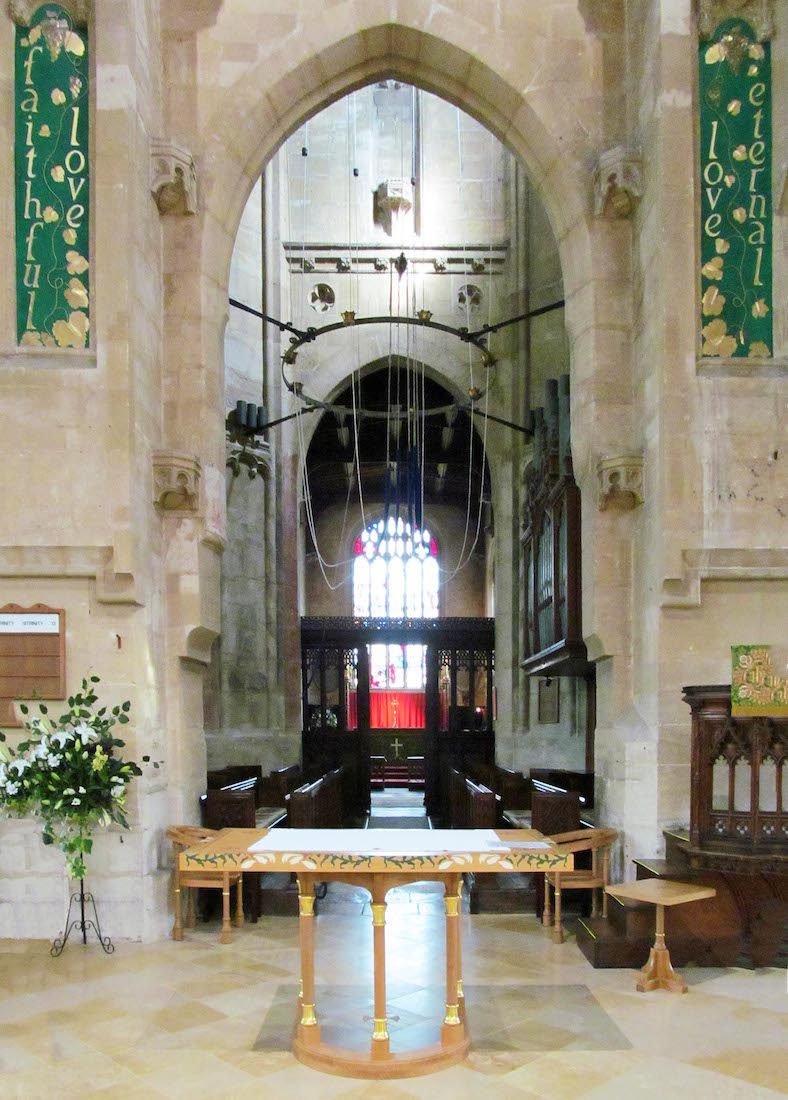
We leave the Lady Chapel, and return to the front of the nave. Beyond the simple nave altar is the crossing with the four giant columns supporting the tower. The bell ropes are visible, and the small organ is on the right. Beyond the East-West seating, a rood screen separates us from the chancel and sanctuary.
43. THE CROSSING TOWER WH AMT
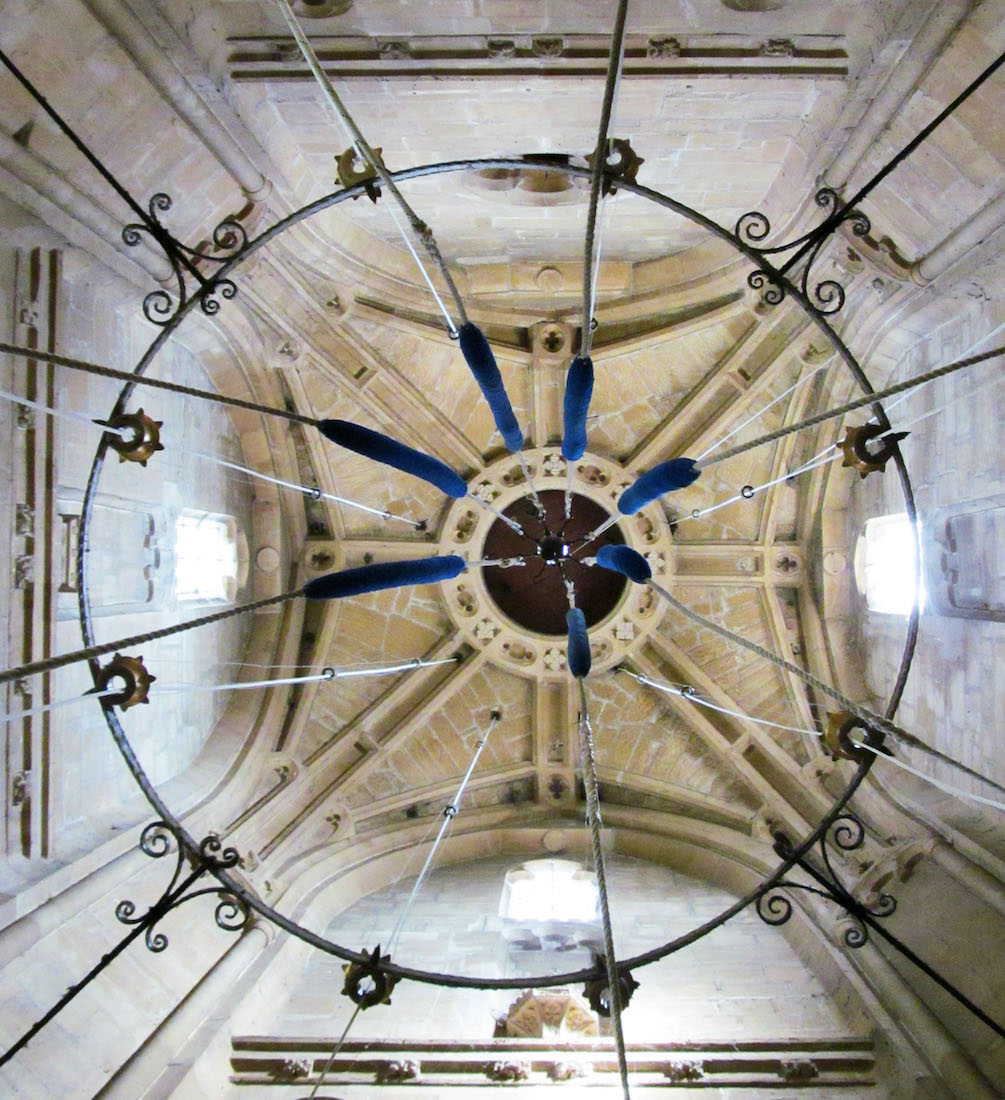
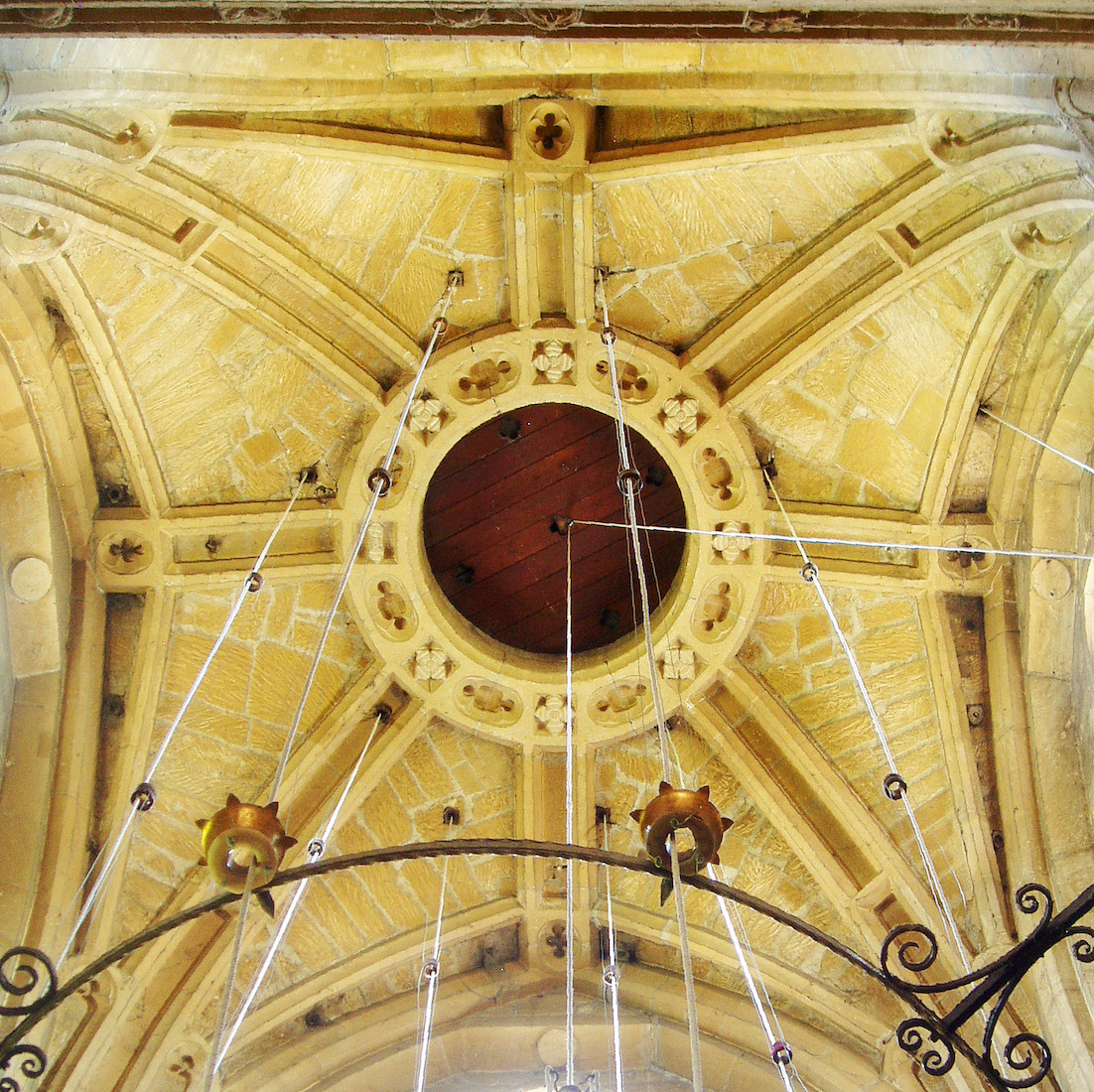
The attractive crossing vaulting has a central round timber trapdoor, through which materials can be raised up into the tower.
44. TO THE CHANCEL WH
The rood screen, and beyond, the chancel ...
45. LOOKING BACK TO THE CROSSING WH
This is a view from the chancel back towards the West window. Just this side of the rood screen is a row of choir stalls. These extend left and right, then linking at each end to a further row of East-West stalls, following the walls of the chancel.
46. CHOIR STALLS AND MISERICORDS AMT
St Mary’s has 14 misericords. The misericords do not co-ordinate with the style of the church, and show signs of having been dismantled and rebuilt, so it seems likely that they came from elsewhere. Local legend has it that they originated in Cirencester Abbey. To see the misericords in detail, tap / click here.
47. SANCTUARY WH AMT
The chancel leads us through to the high altar and the sanctuary. We notice the Consecration Cross on the left wall, beside the vestry door. This dates to 20 June, 1497. Of interest here are the two stained glass windows, and the high altar itself. The large round monuments on either side of the East window remember James Oldisworth (c1640 – 1722) who was born in the area, and Lady Bridget Tracey (died 1632), wife of Sir Robert Tracey, Lord of the Manor of Fairford before and during the English Civil War.
48. SANCTUARY SIDE WINDOW AMT
The window [6] on the South side of the sanctuary has three panels showing Deposition, Entombment, and Harrowing. We see the descent from the cross, entombment of Christ’s body, and a very vivid ‘Harrowing of Hell’. In Christian theology, the term Harrowing of Hell describes the descent of Christ into Hell (or Hades), a period of time between his Crucifixion and his Resurrection.
49. SANCTUARY EAST WINDOW AMT
The sanctuary East window [5] is called the Passion Window. Above the transom are Calvary scenes. Below are five panels showing The Triumphal Entry into Jerusalem, Gethsemane, Christ before Pilate, the Scourging, and Bearing the cross.
50. HIGH ALTAR WH
The high altar is quite simple, using the East window as its backdrop. The red surrounding curtain is supported by five posts, each with a golden angel on top. Each angel carries a candle. This completes our tour of the Church of St Mary the Virgin.
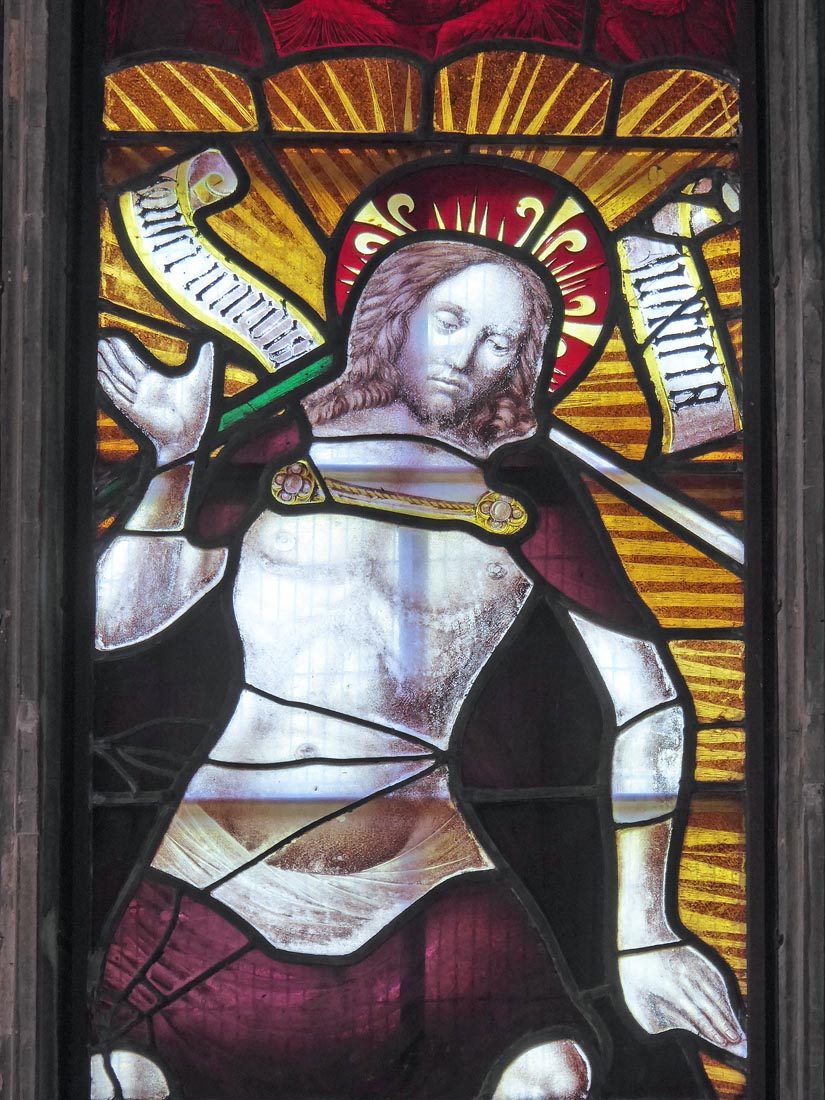
CONCLUSION
I hope you have enjoyed visiting this Church. There seems to be no end to these amazing English parish churches!
All the photographs which appear here, apart from a couple which have special acknowledgement, are by Aidan McRae Thomson and Wendy Harris, and I am very grateful to Aidan and Wendy for their support of this project.
I take little credit for the text which comes from a variety of different sources. The following references have been helpful:
https://etheses.whiterose.ac.uk/14278/2/KC%20Barley%20MA%20Vol2%20final.pdf
and
https://www.britainexpress.com/attractions.htm?attraction=1564
I also express my thanks to my wife Margie who dutifully reads through all my websites and checks the typing.
I would be glad to receive any comments, criticisms or corrections to this site. The best websites are those which contain no errors!
The Church of St Mary the Virgin has its own website with link:
http://www.stmaryschurchfairford.org.uk
The originals of Aidan’s and Wendy’s photographs can be found at:
https://www.flickr.com/photos/amthomson/sets/72157718888199692/
and
https://www.flickr.com/photos/pefkosmad/albums/72157635426769718
Site created 04 / 2021
Paul Scott

